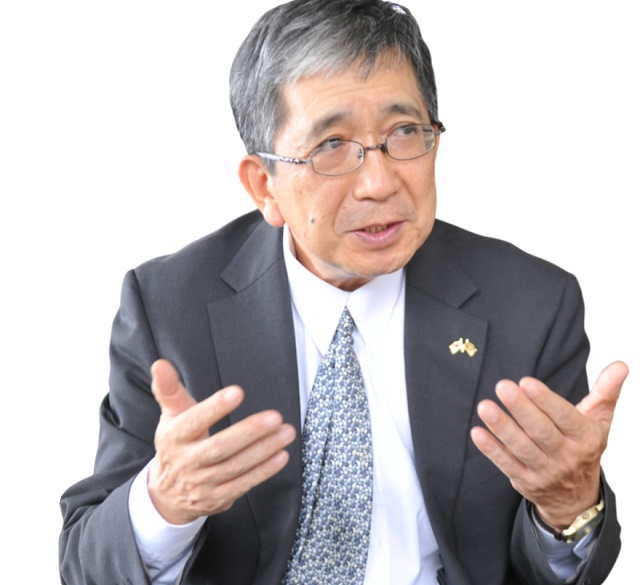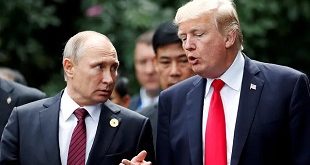
Kameda Kazuaki, the outgoing Japanese Ambassador to Uganda spoke to The Independent’s Ronald Musoke about his four year stay in the country.
You are leaving Uganda after close to four-and-half years. What are some of the memories you carry back home?
Uganda is such a nice country to live;especially when you compare it with Japanese weather. You have neither hot summer nor cold winter. Uganda has no heat waves and you don’t experience earthquakes even though there are a few that come from Tanzania. You don’t have tsunamis and typhoons. So, I have enjoyed staying here very much. I am leaving with too many good memories of Uganda. I was able to visit Murchison Falls National Park in the north along the River Nile. In many Japanese minds, the picture they have of the Nile is in Egypt. They have no idea of the Source of the Nile and the fast flow of this river and this 40-metre high waterfall and the variety of animals in this park. I also went to Queen Elizabeth National Park and Lake Mburo National Park in western Uganda. Prof. Ephraim Kamuntu, the then Minister of Tourism, Wildlife and Antiquities took me to the two parks. On the official side, I have been able to talk to politicians, ordinary people and people in civil society. I will miss my Ugandan friends. Ugandans are so easy to access and communicate with. You have nice smiles and a good sense of humour.
How would you describe the current relations between the two countries?
I am very satisfied with the current bilateral relations. This is because of the way I have been treated as the representative of Japan. Japanese development assistance is highly appreciated here. Japan is a symbol of quality and the Japanese are respected because of their morals, trustworthiness and discipline. It would have been even better if the presence of Japanese business in the Ugandan market were expanded. In fact, I have strenuously been putting my energy into this goal. When I came to Uganda in 2016, the number of Japanese companies registered in the country was 17. Now they are 30 of them. Still, I would have liked to see a much larger number.
Japan and Uganda have had close to 60 years of bilateral relations. What has been the focus of these relations?
Japan, as a developed industrial country, has been extending development cooperation to Uganda, which is intended to bring about shared prosperity for both countries. Japanese experts engaged in the development cooperation projects deal with Ugandan counterparts as an equal partner with mutual respect to achieve the shared goals.We strongly believe that poverty reduction can be achieved through economic growth because without economic growth, you cannot easily distribute wealth to poor people. That is why Japan focuses on infrastructure such as the Source of the Nile Bridge and the flyover project going on in Kampala. Secondly, Uganda is an agricultural country with 78% of households dependent on agriculture. So Japan has been concentrating on promoting rice growing in the country over the last 15 years and this has benefitted the Ugandan farmers. Japan has also focused on improving water, sanitation and health facilities because we believe that in order for people to work properly and meet their human basic needs, they must be healthy. Japan has over the last 20 years been supporting the refurbishment of regional referral hospitals. We started with Soroti Regional Referral Hospital followed by Mbale, Tororo in eastern Uganda and then Mbarara and Kabale. We are now helping the refurbishment of Lira, Gulu and Arua Regional Referral Hospitals. JICA, the Japanese International Cooperation Agency, which is more popular and better known than the embassy, has over the years enrolled over 2,000 Ugandan trainees for a variety of technical courses in Japan. These are the core of our relations. Indeed, JICA has over the years also dispatched about 760 Japanese young volunteers, sometimes senior volunteers as well, to various parts of Uganda. Some of them have found a partner, decided to stay in Uganda to start a family. These people are the real bridges of our friendly bilateral relations.
What explains the Japanese interest in supporting Uganda’s infrastructure, health, agriculture, education and sport?
The principal goal of Japan’s Official Development Assistance in Uganda is to support poverty reduction and redress regional disparity through economic growth. Infrastructure development is the key to boosting economic growth. Education is as well. Among educational disciplines, Japan has from the outset focused on technical and vocational education, represented by the continuous support given to the Nakawa Vocational Training Institute, to produce skilled workers who are a prerequisite for the manufacturing industries. Skilling of workers (soft infrastructure) is equally important for the development of industries. That is why Japan has been supporting Nakawa Vocational Institute since 1968. We celebrated 50 years of this collaboration in 2018 and I was happy to celebrate this anniversary together with the First Lady and Minister of Education and Sports.
Some analysts say it’s only natural that Japan puts emphasis on road infrastructure development since Uganda is quite a big market for Japanese vehicles.
Our projects are demand driven but like I said earlier, Japan believes that poverty reduction has to be achieved through economic growth. This is the conclusion obtained from our engagement in South-East Asia. The key to economic growth is in development of infrastructure and the motto of Japan towards this effort is quality infrastructure. Japan has consistently supported Uganda in terms of infrastructure along the so-called Northern Corridor which connects the Mombasa Port with Kampala and farther to DR Congo, Rwanda and South Sudan. The Source of Nile Bridge is a typical example of the support in the Northern Corridor.
Tell us about the economic relations that exist between Japan and Uganda?
Japanese exports to Uganda in 2018 were worth US$316.90 million according to the United Nations Comtrade database. The main export items are, as you know very well, used vehicles, steel, machinery while Japan imports from Uganda US$18.20 million in the same period. The main import items are coffee, simsim, fish. I know that Ugandan agriculture products such as coffee, cocoa, dried pineapple, vanilla and shear butter are becoming popular in Japan. The number of Japanese companies dealing in those products has increased and I hope that this trend will continue.
There is clearly a huge trade imbalance between the two countries. How do you think this trend can be stopped?
I think Uganda’s trade imbalance is not only happening with Japan but also with India and China. I believe this is a problem of the structure of the economy. Uganda’s manufacturing capacity is not yet strong. That is why the BUBU policy is very important for the development of local industries. But I also think Japan is simply too far to import from Uganda. Remember, Japan is surrounded by many developing countries which also have agricultural products. This is a limiting factor. I would propose that Ugandan farmers’ unions think about collaborating more with Japanese companies because they have wider networks to supply various products. These companies are equipped with a world-wide network to exploit the third country markets in Africa and the Middle East. This is a more realistic option for balancing Uganda’s trade. The Japanese market is open to most goods with zero tariff and zero quota for Uganda and other African nations.
What unique challenges do Japanese investors face while doing business in Uganda?
I have to say that major Japanese companies tend to dodge risk-taking. So they value transparency and stability in business-related legal framework and expect solid infrastructure like stable power supply. I also hear many corruption scandals and this is another risk Japanese entrepreneurs do not want to take. They are strictly forbidden from taking and offering bribes to relevant authorities that issue licenses necessary for business operation. So, you may judge to what extent Uganda can satisfy Japanese investors. Small and medium size companies like Saraya (sanitizer making company) may easily invest in Uganda since the CEO of such a company has the power to make a top-down decision and also because of the size of market of Uganda and East Africa.
Japan is a country that is not very much endowed with natural resources and yet it has grown to become one of the global economic giants. What can the Japanese teach Ugandans in this respect?
I don’t like to use the word “teach” but indeed, we are not well endowed as a country. Instead of abundant natural resources, we rely a lot on our human capital. In Japan, where there are few natural or mineral resources, there is no other way to survive than investing our energy into development of human capital. In addition, harsh living conditions with a lot of natural disasters have compelled Japanese nationals to be equipped with discipline, to nurture saving culture and time keeping as well as to jointly collaborate and closely help each other. In my opinion, those things have pushed Japan up to the current economic status.
Going forward, what areas of interest will Japan focus on in Uganda over the next five years?
It is unlikely that the Government of Japan will change its ODA’s principal goal to support poverty reduction and redress regional disparity through economic growth. I am of the view that, while carrying out development assistance in the spirit of this philosophy and in a way to support Uganda’s self-help efforts to achieve the third National Development Plan (NDPIII) in the areas where Japan has comparative advantage, the Government of Japan will devote more energy to informing Japanese business entities of business opportunities in Uganda and connecting them with capable local partners or third country companies already well established in Uganda. From this point of view, my successor is the right person as he is from the private sector with rich business experiences in Africa.
Where are you headed next?
In November, I will be 66 years old and for many ordinary Japanese, 65, is the age of retirement. So most probably, I will retire but, even as a private citizen, I will continue being a friend of Uganda and I will continue working to cement and promote our bilateral relations. I have been a career diplomat for 42 years. And out of the 42 years I have worked in diplomacy, I have spent 23 years in overseas missions. About 30% of this time has been in Uganda, which is also the only African country where I have served my country twice (I previously stayed and served in Uganda as the Deputy Head of Mission between 2006 to 2008). So I am no African expert but I can confidently say I am an expert on Uganda.
****
 The Independent Uganda: You get the Truth we Pay the Price
The Independent Uganda: You get the Truth we Pay the Price



